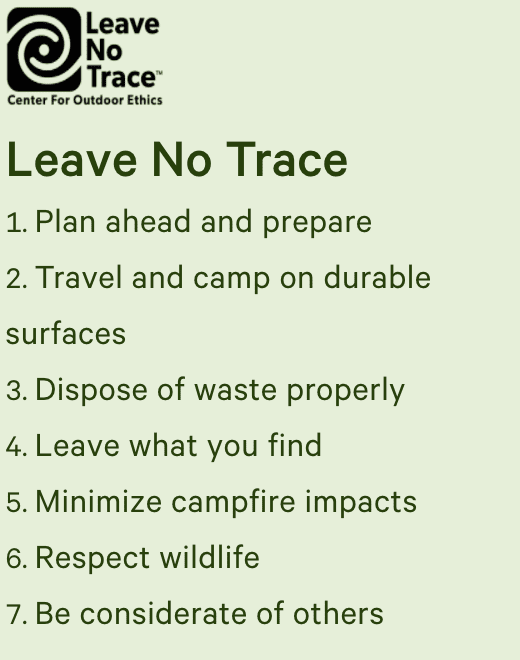River, stream, or creek barns in South East England
Golden sands, white cliffs, and miles of sloping green hills tempt Londoners to the southeast.
- South East England
Popular camping styles for South East England


River, stream, or creek barns in South East England guide
Overview
Nicknamed the “home counties” for their proximity to the capital, South East England is the go-to for Londoners seeking a country retreat or coastal getaway thanks to its quick access from the city and swathes of open countryside. From the storied city of Oxford to the ancient castles and charming villages of Kent and Hampshire, there’s plenty to discover. Hit the beach in summer, or escape urban life in the New Forest and South Downs national parks, where caravan parks stay open year-round. When it comes to camping, London’s fun-loving spirit carries over into the countryside—go camping by the beach, in the forest, or on a farm with slightly higher temperatures and less rainfall than seen in the rest of the UK. Whether you're looking for a hidden coastal nook or an undiscovered British vineyard, there'll be a place in the South East for you.
Where to go
Hampshire and the Isle of Wight
Coast and country are within easy reach in Hampshire. Stroll the medieval streets of Winchester, walk the wooded trails of the New Forest National Park, or check into a beachfront campsite at Southsea, Chichester, or Highcliffe. The south coast ports of Portsmouth and Southampton are both worth a stopover, or for a change of pace, hop on a ferry to the Isle of Wight and pitch your tent within walking distance of the beach.
Sussex and the South Coast
The buzzing beach town of Brighton is the closest to the capital and fills up with Londoners in the summer months. Coastal campers will also find plenty of options around Eastbourne and Hastings, while inland, the 600-square-mile South Downs National Park has woodland walks, hilltop hikes, and camping for all tastes and budgets. Mostly made up of farmland, the park stretches from the white chalk cliffs of East Sussex all the way to Hampshire, and houses the South Downs Way, which dips and rises over 100 miles of chalk uplands.
Kent
The rural playground of Londoners, Kent’s verdant hills, vineyards, and picturesque stone villages stretch from the city outskirts to the east coast. Explore miles of walking and cycling paths, enjoy wine tasting at a local vineyard, or visit the cathedral city of Canterbury. Along the coast, choose a campsite near one of Kent’s 10 blue flag beaches, and don’t miss a walk along the famous White Cliffs of Dover.
Greater London and Around
West of London, Surrey, Berkshire, and Buckinghamshire counties are all within easy day-trip distance of the capital. Regional attractions include Windsor Castle and Highclere Castle, but you can find the most scenic spots for camping and glamping around the Surrey Hills, the Chilterns, and the Thames Valley.
Oxfordshire
Travellers flock to Oxfordshire for its star attraction—Oxford University—but stick around for its scenic canals, pretty Cotswolds villages, and miles of green pastures. Enjoy a boat cruise along the Thames River, discover the parks and lakes of the Blenheim Palace estate, or take your pick of country strolls and bike rides before checking into a campsite or glampsite in the heart of the countryside.
The South East’s best beaches
You can't beat coastal camping—we love throwing our tent into the car and heading to the South East of England. From the mighty cliffs of Dover to the expansive sands of East Sussex, this dynamic shoreline is both accessible and convenient, as well as utterly beautiful. A few miles west of Rye in East Sussex, much-loved Camber Sands is a particular favourite. The huge expanse of dunes and sand can get busy, but head toward the western end to escape most crowds while still enjoying the brochure-blue of the sea. Go for a sunset walk on a warm night and you might just forget you’re in England!
For views, meanwhile, West Wittering’s stretch of sand overlooks Chichester Harbour and the Solent in Hampshire. The best way to reach it is undoubtedly taking the train to Chichester (with a bike), and then riding along the 11-mile Salterns rural cycle route. From the western end, you can cross a ridge to East Head, a remote sand dune at the mouth of the harbour that's a delight for kids.
To really engage the imagination, though, take the little ones fossil hunting. Botany Bay is the most northerly of Broadstairs' beaches in Kent, with a 660-foot curve of sand backed by white cliffs and chalk stacks. When the tide is out, it’s excellent for fossils. If you’re not fossil hunting, it's exploring rock pools that will fill the time. The most intrepid visitors can also paddle round to the beach's secret bay, where the cliffs were once used by smugglers to hide their booty.
You can't mention beaches in the South East without mentioning Brighton. It is, undoubtedly, one of England's coolest coastal cities, and has been London's favourite seaside getaway since the Prince Regent first came two centuries ago. Popular with kayakers, it's now also home to British Airways i360, the world’s tallest moving observation tower. Come bank holiday weekends, the beach fills with sun-seekers and swimmers, as well as campers from the surrounding countryside. Even those pitching tents in the South Downs often come round.
For something different, Littlehampton in East Sussex boasts two award-winning beaches: the gorgeous River Arun and a huge seafront green. Excellent beach cafés include East Beach Café and West Beach Café. St. Mildred’s Bay, too, has a local café as nice as the beach itself. A stunning cliff-lined, sandy bay, St Mildred's boasts calm swimming conditions for most of the year. And aside from the obvious seaside attractions, designated cliff walks have been declared sites of special interest. Travel up the coast on the Viking Coastal Trail and you can choose between the historic Reculver Towers and Margate to finish up a day by the coast.
5 great pubs in South East England
- Opened almost 600 years ago, the George and Dragon (01304 613106) in Sandwich has been a favourite watering hole for centuries. The menu changes seasonally, and if you’re lucky, you might find a fillet of sea bream and saffron potatoes on your plate.
- Surrounded by Shoreham’s countryside, family-run The Two Brewers (01959 522800) takes pride in serving top-quality, traditional pub grub. After a long walk, bundle in and get a round of drinks before ordering a hearty chicken, bacon, and leek shortcrust pie.
- Tucked away from the bright lights of Brighton’s seafront, it would be easy to miss the Sussex Yeoman (01273 327985). But those who turn right and walk up Guildford Road as soon as they leave Brighton Station will find one of the best Sunday roasts in the South East. The pub is only a short walk to the North Laines and central Brighton.
- In Rye, the Mermaid Inn (01797 223065) dates back to the Norman Conquest, and the main pub was built in the 15th century. The pub features a lovely log fireplace and attracts everyone from ghost hunters to Shakespeare historians.
- One of the two gardens at The Hatch Inn (01342 822363) boasts gorgeous views of Ashdown Forest, and you may recognise the pub from TV—it’s been a setting for the likes of Channel Four’s Celebrity Wife Swap and ITV drama Rough Treatment.
Top 10 things to do in South East England
- Explore more than 1,400 years of Christian history at the extraordinary Canterbury Cathedral.
- Visit the Turner Contemporary art gallery, set in a seafront guesthouse where JMW Turner once stayed.
- Discover the exquisite Salutation Gardens, laid out behind a glorious 1912 mansion.
- Walk the South Downs Way, boasting some of the UK's most impressive coastal scenery.
- Buy a book from Camilla’s in Eastbourne, a Victorian town house packed with half a million volumes.
- Gaze in awe at the thrilling beauty of Beachy Head.
- Check out the world’s most slender tower in Brighton: the i360 Tower.
- Watch ships passing in and out of Southampton Water from pine-fringed Lepe Beach.
- Ride through peaceful woodlands on the West Wood Trail at Farley Mount.
- Enjoy the wide-open landscape of Cissbury Ring to discover the site's hidden stories.
A brief history of South East England
The proximity of Kent and Sussex to the rest of Europe means the South East has historically served as a gateway for many invaders. Roman remains pepper the coast—most dramatically at Lullingstone in Kent and Sussex’s Bignor, both of which make a great day out.
When Christianity spread through Europe, it arrived in Great Britain on the Isle of Thanet, the most easterly point of Kent (since rejoined to the mainland by subsiding sea levels and silting). In 597 AD, Augustine moved inland and established a monastery at Canterbury, which is still the home of the Church of England—and arguably South East England’s most important historic attraction.
The last successful invasion of England took place in 1066, when, near Hastings, the Normans overran King Harold’s army on a site now marked by Battle Abbey. The Normans certainly left their mark, as Kent remains unmatched in its abundance of medieval castles, among them Rochester’s huge citadel and Dover’s sprawling cliff-top fortress.













